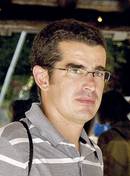Road to Copenhagen COP 15: Important agreement pending

Although at COP 13, which was developed in 2007, the so-called Bali Action Plan for Copenhagen 2009 (COP 15) was developed as a roadmap and with a view to the approval of the post-kyoto regime, nothing relevant occurred in Poznan in 2008 (COP 14). The Bali Action Plan put on the table many important issues, such as, for example, the kind of agreement needed for the post-Kyoto regime, how the obstacles to a significant reduction in emissions could be overcome, or how adaptation problems could be effectively resolved. These questions are yet to be answered.
The lack of commitment of the U.S. during Bush's term, the least strong position of the European Union, and the little interest of large developing countries, such as China, India or Brazil, are some of the factors that explain the events that have occurred in recent years. The future is about to come.
Since COP 14 there have been numerous negotiations to give an international, ambitious and effective response to climate change, with the aim of agreeing to it in Copenhagen. The meetings were held in March, June and August in Bonn, September and October in Bangkok and November in Barcelona.
The basis for the Copenhagen negotiations is already installed. The new president of the US, Obama has manifested his willingness to reach an agreement and the Chinese Prime Minister, Wen Jiabao, has promised an important commitment. Europe has committed to reducing its greenhouse gas emissions by 20% by 2020 compared to those of 1990 and has not ruled out the possibility of reducing them by up to 30% if a global international agreement on climate change is reached. This is an important part of the community agreement on energy and climate, 20-20-20. The EU is ready to lead climate policy again after a few years of unclear leadership, ambitious goals that appear to be a sign of courage.
The latest negotiations in Bangkok in September and October have been thwarted by developing countries, which consider that rich countries do not strive to assume commitments to significantly reduce emissions. China's climate commissioner, Yu Qintag, has recently accused developed countries of "trying to change the rules of the game a few weeks before the world commissioners met in Copenhagen [...]".
The Swedish negotiator for climate matters, which holds the EU's rotating presidency, has acknowledged that the talks are going slowly.
The meeting held in Barcelona last November has helped advance towards a greater commitment in Copenhagen, since at least no new obstacles have appeared. There is, therefore, a small margin of hope. In any case, it is clear that rich countries have to take a step forward and promise something serious and credible. Above all, it is urgent that the US. publish concrete and clear reduction targets, even though Americans want to postpone this fact until they have a new law. This is the biggest obstacle to reaching an agreement covered by the law, and on this occasion it became clear that it will not be possible at the meeting of the Heads of State held on 14-15 November. However, an important political agreement can still be reached. This has been proposed by the Danish Prime Minister, Lars Lokke Rasmussen, and has confirmed US President Barack Obama. In any case, it must be taken into account that it is normal that before the meetings a pessimistic vision is perceived that allows to give for good any results obtained.
What needs to be achieved
According to the executive secretary of the United Nations Framework Convention against Climate Change, Yvo de Boer, the four main issues to be addressed at COP 15 are, in short, the following:
1. How much are the industrialized countries willing to reduce greenhouse gas emissions?
2. What are the big developing countries willing to do to limit the growth of their emissions?
3. How will the aid needed by developing countries be financed to reduce their emissions and adapt to the effects of climate change?
4th How will financial resources be managed?
In order for the Copenhagen meeting to succeed, it is necessary to answer these four questions and ensure an equitable sharing of the burden of climate change.
Developed countries need to assume leadership and commit to reducing emissions according to the IPCC recommendations. In addition, financial and technological support must be guaranteed to developing countries. Kyoto should be part of the following line of action: eliminate commercial and technological barriers to technology transfer; promote cooperation, innovation and research; and define the Adaptation Fund and its management. Important issues are clarification of the procedure to avoid deforestation and degradation of developing countries and the estimate of CO 2 not poured. In addition, an institutional structure should be designed to support the new action against climate change.
On 17 December we will know if the Copenhagen meeting has been successful and if these commitments have been reached.







